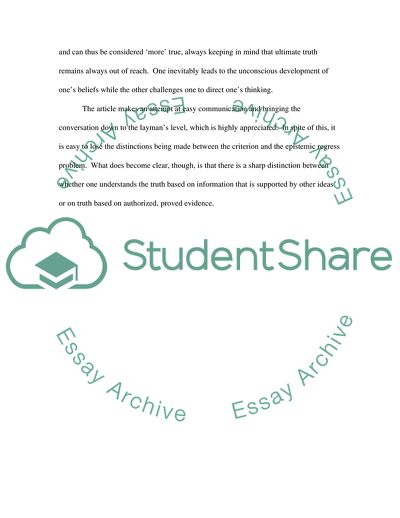The Problem of the Criterion and the Epistemic Regress Problem Article. https://studentshare.org/social-science/1717795-the-problem-of-the-criterion-and-the-epistemic-regress-problem-by-andrew-d-cling
The Problem of the Criterion and the Epistemic Regress Problem Article. https://studentshare.org/social-science/1717795-the-problem-of-the-criterion-and-the-epistemic-regress-problem-by-andrew-d-cling.


